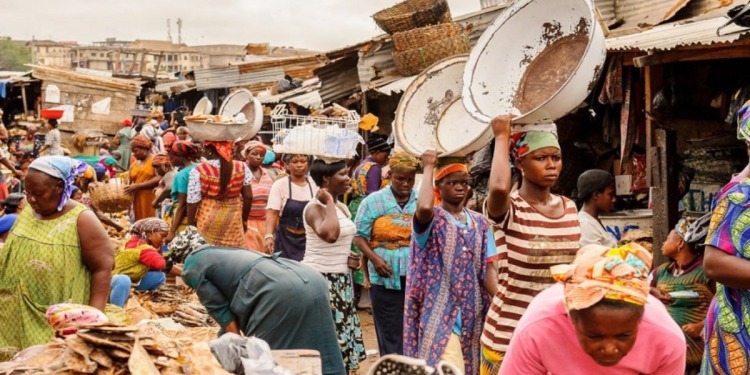Nigeria has experienced several female gender-related difficulties, including unequal treatment of women in the corporate sector, low female representation in the legislature and other government positions, and a lower enrollment rate for girls in schools.
Although the Nigerian Constitution guarantees gender equality and anti-discrimination, women still face injustices and marginalisation.
Despite constitutional guarantees of gender equality, women still face injustices and marginalization, with Nigeria ranking 130th out of 146 nations in the gender gap report.
Several policies have been put in place to promote gender equity, such as the national gender policy in agriculture, but the new government of Bola Tinubu needs to implement these policies that address the root causes of these problems thoroughly.
A take-off point is raising more awareness to remind women of their power and men of the value of women in the economy.
Nigeria’s gender profile
The population of Nigeria is roughly 49% female, and gender inequality prevails there. Nigeria was placed 130th out of 146 nations in the gender gap report, earning a score of 0.637, where 1 is the best score and 0 is the worst.
The ranking of gender gap parity considers factors like economic opportunity and participation, educational attainment, health and survival, political appointment, and the financial exclusion of women worldwide and their acquisition of wealth.
Inequality between the sexes also affects decision-making, economic autonomy, and repugnant cultural norms.
Nigerian women have faced obstacles, including poverty, financial inclusion, finishing school, land ownership, internet access, and corporate representation.
The founder of GirlsTalk, Toluwani Olukoya, emphasised the difficulties women have experienced in Nigeria regarding access to healthcare and education, as well as cultural prejudice and stereotypes. She cited Nigeria’s high maternal death rate as proof that the country lacks access to high-quality healthcare.
What policies have been put in place earlier by previous governments in Nigeria
The Nigerian government established the national gender policy and the national gender policy in agriculture as a guide toward a more balanced economy.
The national gender policy establishes rules for integrating gender concerns into numerous fields to promote gender inequity and increase the involvement of women, girls, and boys in socioeconomic and political development.
Another policy arising from female unequal access to and ownership of lands is the national gender policy in agriculture. For women to engage in agriculture, they need access to land. The policy aims to equalise access, ownership, and management of productive resources between the sexes. Men dominate the agricultural industry and reap the most rewards regarding resources, benefits, and outputs.
For the Nigerian government to fulfil its obligations regarding gender equality, responsible leadership, good governance, and social responsiveness to the needs of its most vulnerable groups, it must adhere to a set of minimal requirements.
The founder of GirlsTalk, Toluwani Olukoya, emphasised the need to implement gender policies thoroughly. She questioned when we would “go deep.” Having policies is one thing; having policies that dig deeply into the causes of these problems is quite another. These policies are still being developed, but they need to be workable.
She emphasised that women must be given a voice and that fairness, not gender-biased equality, is what Nigeria needs right now. Mrs Olukoya cited an example of how the National Assembly turned down legislation that, among other things, would have enhanced the representation of women in politics.
Although the assembly finally bowed to pressure and rescinded their decision on three bills after sustained protests by groups advocating for them, these three did not include those that would increase women’s representation in the political space.
Enrollment of females in all levels of education
Junior secondary schools have the highest proportion of female students at 49.8%, while colleges of education have 32.7% of female students, the lowest among all levels of education.

Nigeria’s female employment rate
Even though there is not a significant wage gap between men and women in Nigeria’s labour force, which has improved over time as more women have entered the workforce, the pay for women’s labour is generally lower than that of men across all occupations.
Due to the maternal wage penalty, which rises as a woman has more children, and because of life events like pregnancy and delivery, women’s labour is paid at lower rates than men’s, ultimately preventing them from accumulating as much wealth as men.
.png)
Participation in politics
1999 had the lowest representation of women holding political seats, with only 2.5%; the highest percentage of women in political offices was achieved in 2011 and again in 2019, with 6% representation each year.
From 1999 till date, only 157 women have been elected into the 469-member national assembly compared to 2,657 men during the same period.
.png)
Nnenna Enekweizu, the partnership and fundraising manager of Women in Management, Business and Public Service (WIMBIZ), opined that not much is being done to solve Nigeria’s problems with its female gender. She told Dataphyte that a policy should be enough to solve these female gender issues, but Nigeria’s problem is the implementation of these policies.
She added that more awareness-raising efforts should be made in Nigeria, particularly for women to remind them of their power and for men to remind them of the value of women in the economy.




.png)
.png)